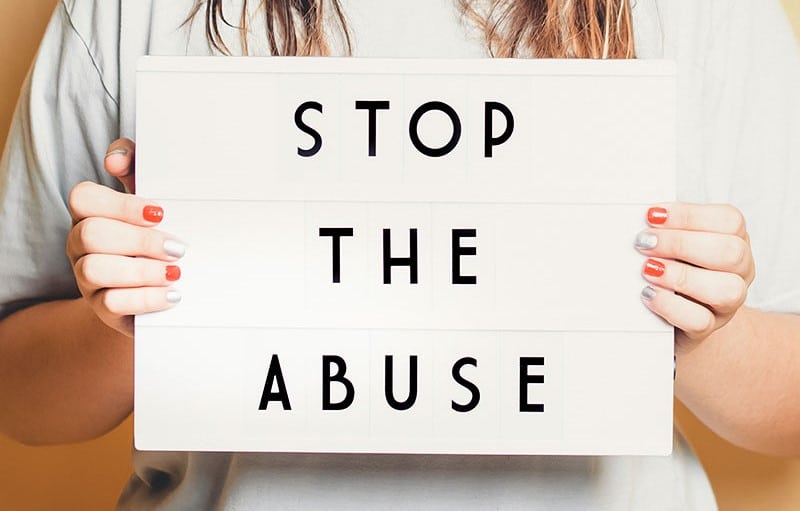
What is Abuse?
Let’s talk about the term abuse. For a lot of us it’s a term that is attached to a deeply painful experience. For a lot of us it’s a term that we hear and think that could never happen to us.

Identifying the Different Forms of Abuse
Abusive behavior takes many forms. Physical and sexual abuse tend to be more widely known. But did you know that abuse can also be emotional and psychological? Abuse can also be digital.
- Emotional Abuse: Since it may be less familiar, let’s start with emotional abuse. Emotional abuse occurs when an abuser seeks to control or manipulate someone through repeated maladaptive behavior. Emotional abuse is gaslighting, belittling, name calling, humiliating, yelling, threatening. Abusers may threaten to harm themselves or someone else in order to get what they want. Emotional abuse can also look like controlling what someone does, who someone can spend time with; which can often lead to isolation from friends and family.
- Digital Abuse: An abuser may seek to control someone’s phone, whom they contact and how. They may control a person’s social media accounts and post unwanted content. This type of abuse is called cyber-violence or digital abuse.
- Sexual Abuse: Sexual abuse occurs when someone forces unwanted sexual contact on another person. This can be unwanted comments about someone’s physical appearance, inappropriate touching, rape, forcing pregnancy or termination of pregnancy.
- Physical Abuse: Physical abuse occurs when someone physically causes bodily harm to another. Physical abuse includes hitting, kicking, biting, pushing, and punching. Physical abuse is violent behavior or the threat of inflicting violent behavior on someone.
- Other Types of Abuse: This is a fairly general overview of abuse. It can definitely be more complicated and nuanced than what is mentioned above. Abuse can also be harassment or stalking. Abuse can also be financial, where an abuser controls access to money.

How to Deal with Abuse: Seeking Help and Reaching Out for Support
If you have experienced any of the above mentioned abuses, talk to your therapist or psychologist about supportive resources. It may be enough to work through the trauma of the abuse in individual therapy. For others, you may benefit from a domestic violence hotline, a shelter or a support group. Remember the term domestic violence refers to any of the abuses discussed above. Please take a look at the following resources if you or someone you know may need this support.
Helpful Resources for Victims of Abuse
National Domestic Violence Hotline:
Helpful Websites:
https://www.peaceoverviolence.org/
https://dpss.lacounty.gov/en/jobs/gain/sss/domestic-violence.html
Stay Updated With The Most Recent News & Blogs From Soultenders.
Get blog articles and offers via email







